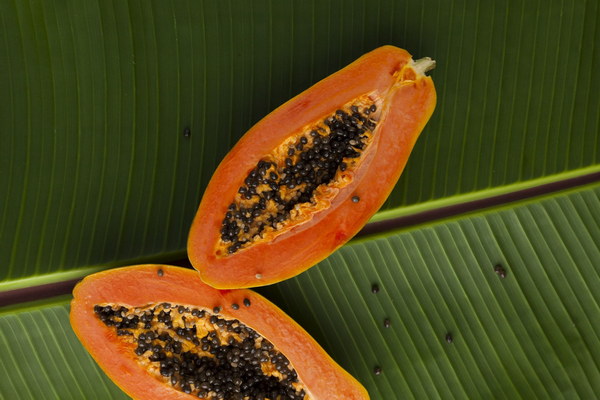Cooling the Fire and Eliminating Dampness A Holistic Approach to Traditional Chinese Remedies
In the realm of Traditional Chinese Medicine (TCM), the concept of balancing the body's internal environment is fundamental to health and wellness. One of the core principles in TCM is the concept of cooling the fire and eliminating dampness, which aim to address common imbalances in the body that can lead to various health issues. In this article, we will explore the meaning behind these terms and delve into the remedies and practices that can help achieve a harmonious balance.
What does cooling the fire mean?
In TCM, fire refers to the body's metabolic processes, including digestion, metabolism, and circulation. When the body's fire is balanced, these processes function smoothly, leading to good health. However, when the fire becomes excessive, it can manifest as symptoms such as irritability, insomnia, constipation, and an overactive mind. To cool the fire, TCM practitioners use various methods to calm the body's internal heat, including dietary adjustments, herbal remedies, and lifestyle changes.
How to cool the fire:
1. Dietary adjustments: A diet that includes cooling foods can help reduce internal heat. These foods are typically characterized by their cold nature and are often found in the produce section of your local grocery store. Some examples include leafy greens like kale and spinach, fruits like watermelon and strawberries, and grains like brown rice and quinoa.
2. Herbal remedies: TCM herbal formulas can be prescribed to address specific imbalances related to fire. Herbs such as Scutellaria baicalensis (Baical skullcap), Phellodendron amurense (Amur corktree bark), and Bupleurum chinense (Chinese thoroughwort) are commonly used to cool the fire.
3. Acupuncture: Acupuncture can help balance the body's energy, or Qi, and address internal heat. Specific acupuncture points, such as Stomach 36 (ST36) and Large Intestine 4 (LI4), are often used to cool the fire and reduce heat-related symptoms.
4. Lifestyle changes: Adequate sleep, stress management, and avoiding excessive caffeine and alcohol can help maintain a balanced fire.
What does eliminating dampness mean?
Dampness in TCM refers to the accumulation of excess fluid in the body, which can lead to a range of issues, including fatigue, bloating, and weight gain. Dampness can be caused by external factors, such as living in a humid climate or overexposure to moisture, or by internal factors, such as poor diet and excessive eating.
How to eliminate dampness:

1. Dietary adjustments: A diet that focuses on drying foods can help eliminate dampness. These foods are typically rich in fiber and are often found in the produce section of your local grocery store. Some examples include cruciferous vegetables like broccoli and cauliflower, onions, garlic, and ginger.
2. Herbal remedies: TCM herbal formulas can be prescribed to address specific imbalances related to dampness. Herbs such as Atractylodes macrocephala (Cang Zhu), Poria cocos (Fu Ling), and Alisma orientale (Zhi Bai He) are commonly used to eliminate dampness.
3. Acupuncture: Acupuncture can help balance the body's energy and address dampness-related symptoms. Specific acupuncture points, such as Spleen 6 (SP6) and Stomach 36 (ST36), are often used to eliminate dampness.
4. Lifestyle changes: Regular exercise, avoiding excessive damp environments, and maintaining good hygiene can help prevent the accumulation of dampness.
By focusing on cooling the fire and eliminating dampness, TCM aims to restore balance to the body's internal environment, leading to improved health and well-being. While TCM may not replace conventional medical treatments for serious conditions, it can be a valuable addition to a holistic approach to health. If you're interested in exploring TCM and its remedies, consult with a qualified TCM practitioner to determine the best course of action for your individual needs.









